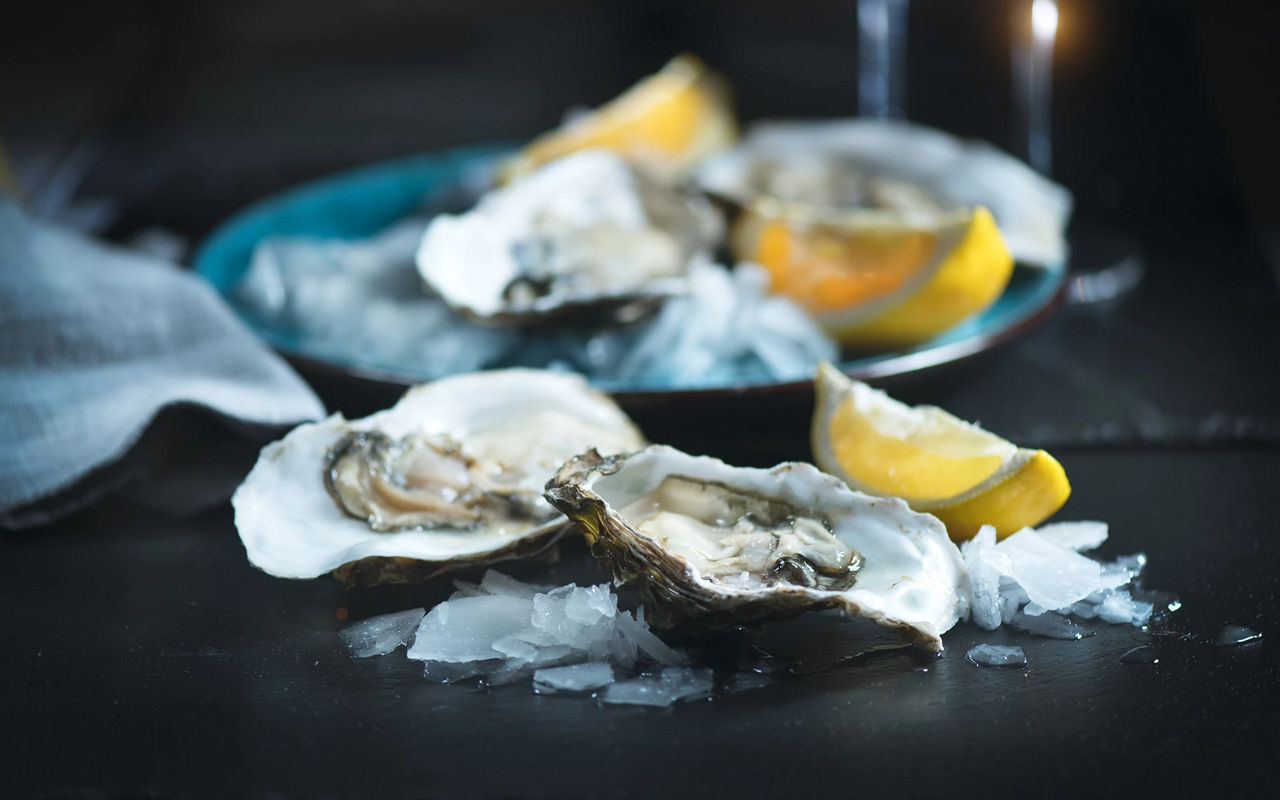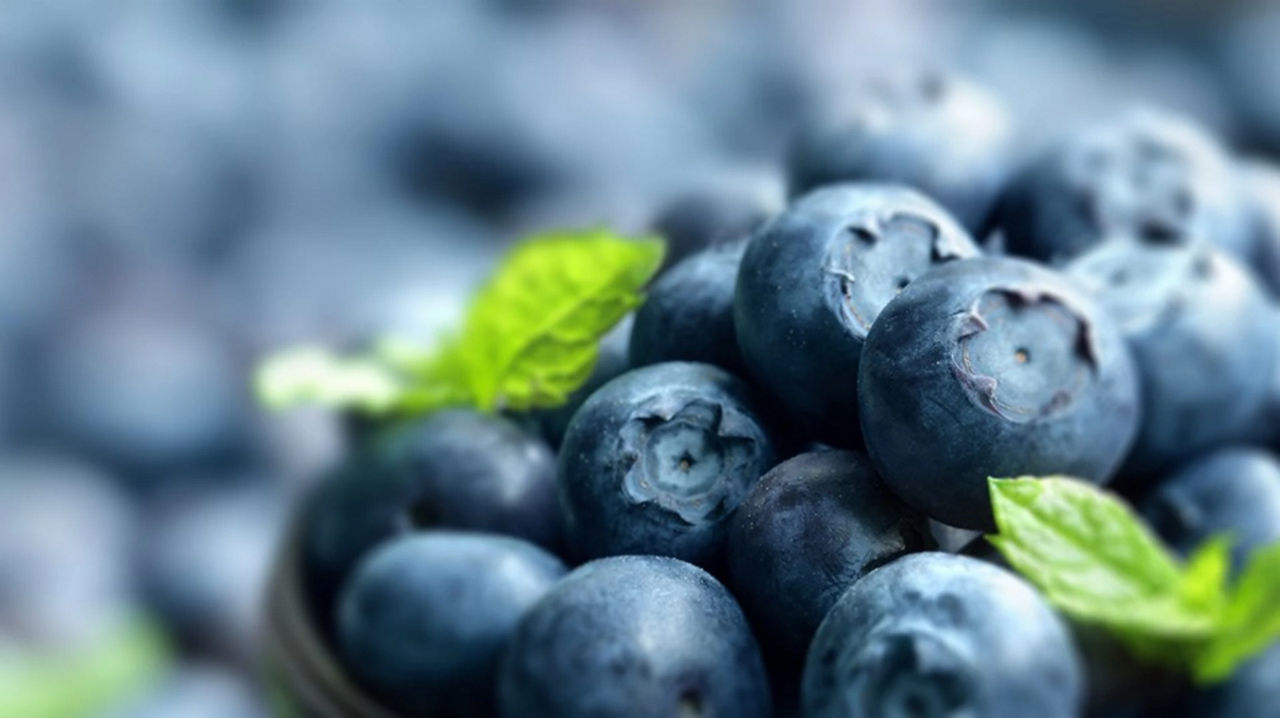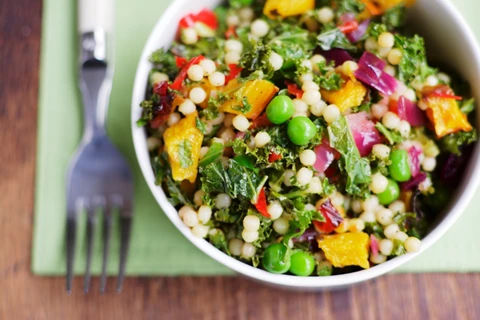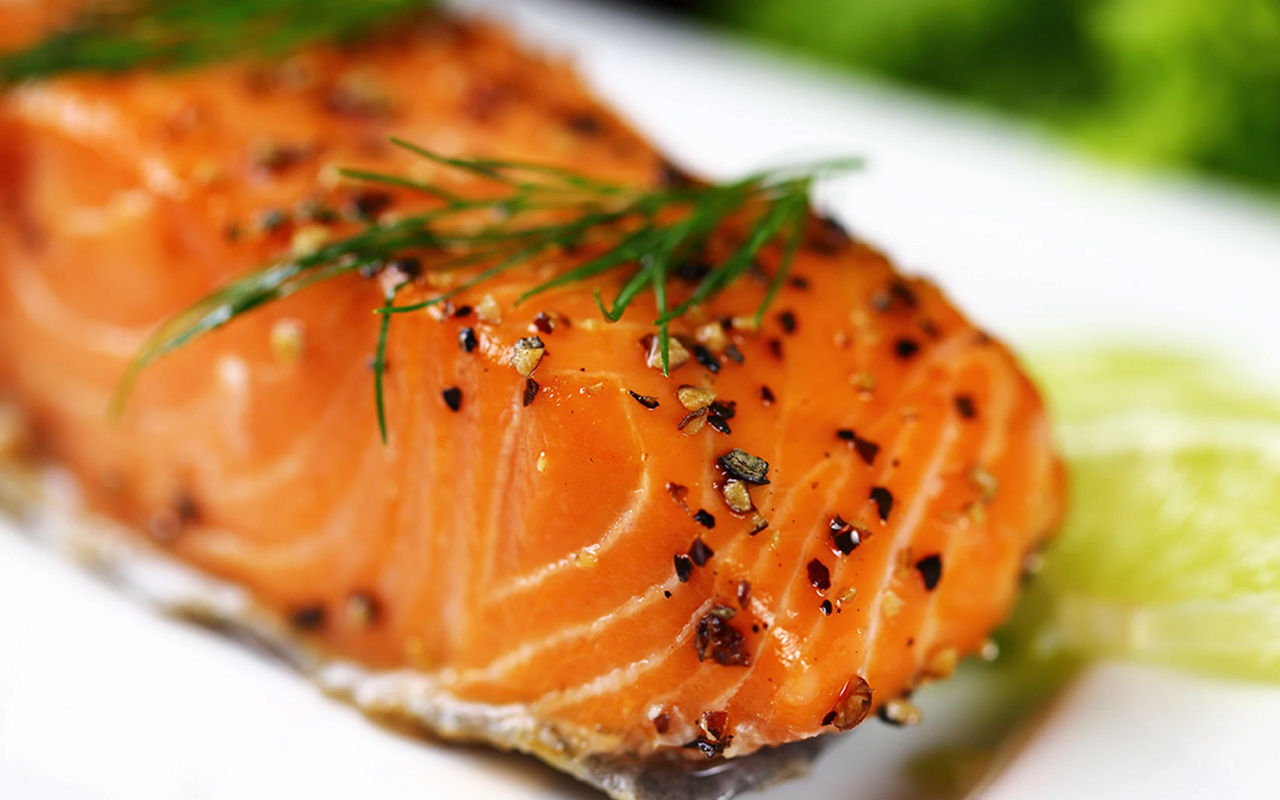They’re made up of starches, sugars and fibre, which are broken down in the gut and absorbed into your bloodstream as sugar1.
Carbs in pregnancy
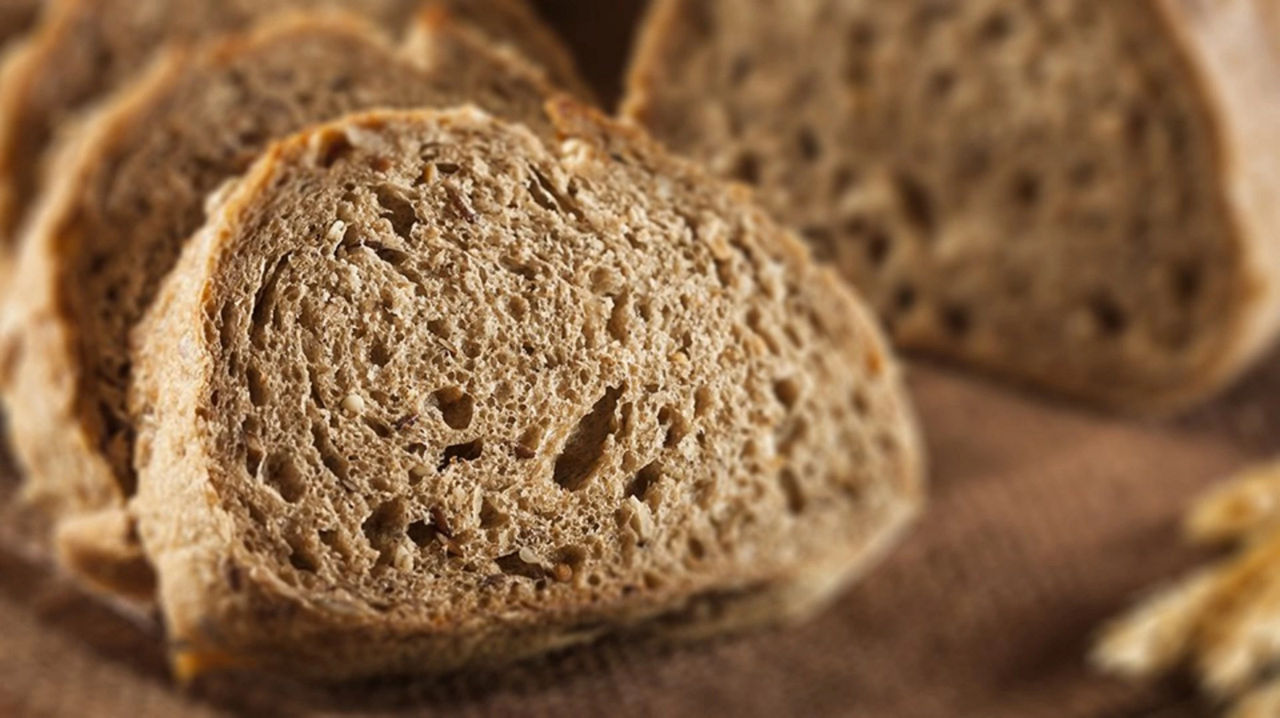
During pregnancy, carbohydrates are a great source of energy for you and your growing baby.
Whilst carbohydrates are an essential part of a healthy pregnancy diet, not all carbs are created equal. Different types of carbs can vary in terms of their nutrition. Find out about the different types of carbohydrates, how they affect your body and which foods to eat to ensure you’re getting enough fibre.
Can I have bread during pregnancy?
It’s perfectly fine to eat bread in pregnancy as part of a healthy and balanced diet2. Instead of eating white bread, try choosing wholegrain options for added fibre, as this will help you to avoid constipation, a common pregnancy symptom.
To maximise the nutritional benefits, combine your bread intake with a variety of foods from different food groups. For example:
- Making a sandwich made with wholegrain bread and a protein-rich filling such as tuna, salmon or chicken.
- Snacking on wholemeal pitta bread with hummus and carrot sticks.
- Having baked beans on toast with grated cheese.

Carb cravings in pregnancy
Pregnancy cravings vary from person to person. They’ll usually start during your first trimester3 and are thought to be caused by the hormonal changes happening in your body which affect your sense of smell and taste4.
It’s not unusual to crave carbs when you’re pregnant. In fact, cravings can include anything from strange food combinations to a sudden craving for something you disliked previously. There’s simply no rhyme or reason to it, and no firm evidence as to why particular cravings happen.
Although it can be difficult to resist cravings, it’s important to eat as well as possible for the health of you and your baby. If you notice that your cravings result in you eating less healthily or they’re causing you concern, speak to your GP or midwife for advice.
Why does a pregnant woman need carbohydrates?
It’s important that you eat enough carbs during pregnancy, as they’re an important source of energy, and a key part of a healthy and balanced diet. Eating carbs during pregnancy will also help you to feel full without the need to consume too many calories5.
Carbohydrates should make up around a third of the food you eat, unless you’ve been told otherwise by your doctor or midwife. They’re the main source of a number of important nutrients, and they include calcium, iron, fibre and B vitamins6.
Carbohydrates can also help to keep your energy levels up during labour, so you may want to pack some wholegrain crackers or biscuits into your hospital bag when the time comes.
How many grams of carbs per day does a pregnant woman need?
If you’re wondering about what your carbohydrate intake during pregnancy should be, the HSE recommends having three meals per day that each include around 30-45g of starchy carbohydrates7.
There are plenty of easy ways to ensure that you’re getting the right amount of carbs during pregnancy. Try a portion of porridge or high fibre cereal for breakfast, some wholemeal bread or pasta for lunch, and potatoes with the skin on with your dinner.
Good carbs for pregnancy
While eating carbohydrates is vital for your and your developing baby’s health, some have more benefits than others.
The benefits of the different types of carbohydrates are measured by the glycaemic index, which tells us how quickly a particular food affects your blood sugar levels8. High GI foods are those that are broken down quickly by the body, causing a rapid increase in blood glucose and insulin levels. High GI foods include things like white bread, white rice and sugary treats such as cakes and biscuits8.
Foods that are broken down by the body slowly and cause a steady increase in blood glucose and insulin levels are categorised as low GI foods. These keep blood sugar levels more stable and score low on the glycaemic index8.
Low GI carbs for pregnancy
Low GI foods, or ‘good’ carbs for pregnancy include9:
- Bananas
- Sweet potatoes
- Porridge made with rolled oats
- Chickpeas, beans and pulses
- Wholegrain breads, cereals and pastas
A diet based on these healthier starches can help ensure your blood sugar levels remain steady10, which is especially important if you’ve been diagnosed with gestational diabetes.
Whilst the glycaemic index is a useful tool, the HSE is clear that it can be misleading, and warns against dismissing all foods with a high GI rating8. This is because some very healthy foods are classed as high on the GI scale (for example watermelon), whilst some unhealthy foods are categorised as low (for example chocolate cake)8.
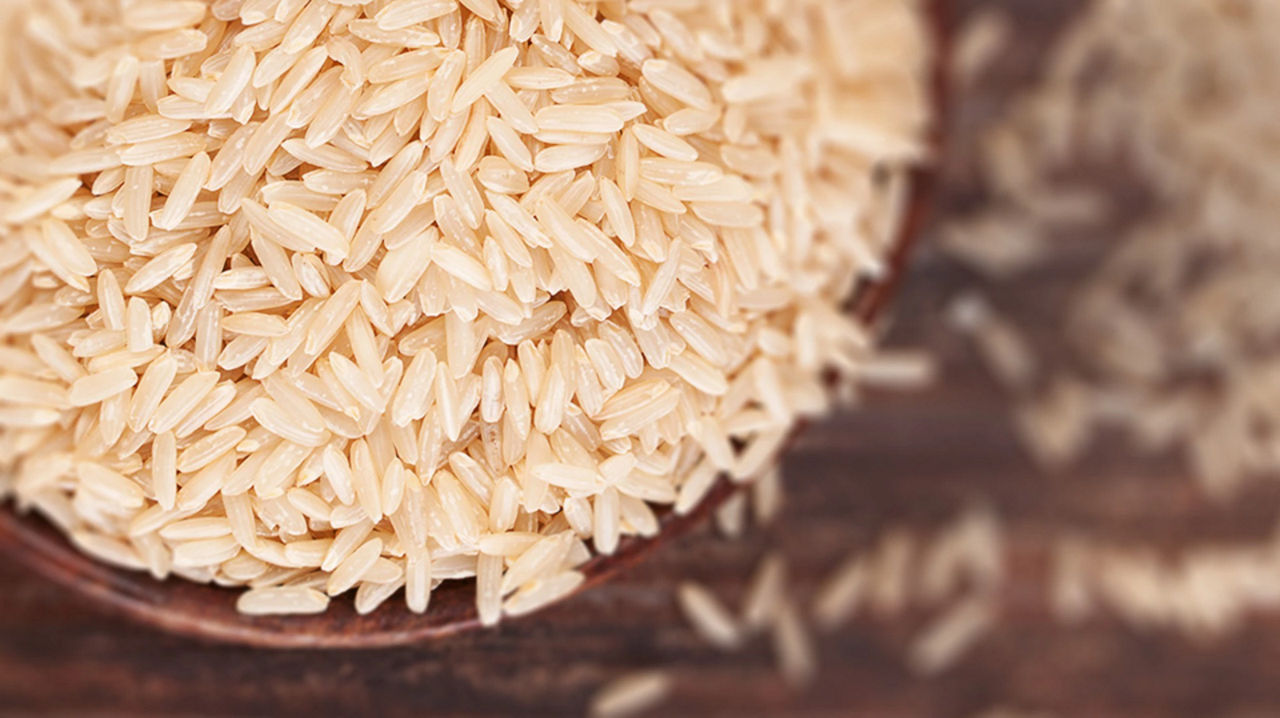
Eating uncooked rice in pregnancy
Cooked rice and grains left at room temperature can be a breeding ground for bacteria that can potentially make you ill11. To minimise any risk, cook these foods when you’re ready to eat them, rather than preparing them in advance.
If you need to prepare rice or grains ahead of time, or if you have leftovers you’d like to use, make sure you refrigerate them within an hour of cooking and eat them within 24 hours. You should throw away any rice or grains that have been left at room temperature overnight and never reheat them more than once12.
If you’re eating pre-prepared food with rice or grains, always follow best before dates and storage guidelines.
Low carb diet and pregnancy
Unless you’ve been advised to do so by your doctor or midwife, there’s no need to follow a low-carb diet. During your pregnancy, it’s very important to eat a healthy balanced diet that contains a variety of different foods from each of the main food groups. And this includes carbohydrates.
Low carb diet during pregnancy due to gestational diabetes
If you have gestational diabetes, you may be advised to eat foods classed as low GI, such as wholewheat pasta, rice and bread. This is because these foods tend to release sugar slowly, making you better able to manage your blood sugar levels13.
It’s important that you follow any dietary advice your doctor, midwife or dietician gives you, and always talk to a medical professional before making any changes to your diet during pregnancy.
Eating too many carbs when pregnant
Because carbohydrates are directly related to your blood sugar levels, If you find yourself eating lots of them, this could make it harder to keep your blood sugar levels in check.
Whilst carbohydrates during pregnancy are an important part of your diet, it’s very easy to eat too many. That’s why it’s important to spread the amount of carbs you eat across each of your three meals a day, be careful with your portion sizes and balance them out with healthy fats, protein and fibre.
Ultimately, the best approach is to eat a wide variety of healthy foods to ensure that you and your baby are getting all of the vitamins and minerals you need
Carbohydrate deficiency in pregnancy: the importance of fibre
Fibre is a carbohydrate that plays an important role in the function of your digestive system. Including good sources of fibre in your diet when you’re pregnant helps to keep your digestive system healthy, and can help to prevent constipation14.
Good sources of fibre include:
- Fresh fruits and vegetables
- Unsalted nuts and seeds
- Wholegrain breads, cereals and pasta
- Potatoes with their skins on
- Beans, pulses and chickpeas
Related Topics
Read next

Get in touch with our Careline experts
Our nutritionists and feeding advisors are always on hand to talk about feeding your baby. So if you have a question, just get in touch
- https://www.bfwh.nhs.uk/wp-content/uploads/2016/04/BDA-Carbs.pdf
- https://www.nhs.uk/pregnancy/keeping-well/have-a-healthy-diet/#:~:text=Starchy%20foods%20(carbohydrates)%20in%20pregnancy,%2C%20oats%2C%20yams%20and%20cornmeal
- https://www.nhs.uk/start4life/pregnancy/pregnancy-faqs/#:~:text=If%20you%20do%20start%20having,crave%20fatty%20foods%20like%20chips.
- https://www.nhs.uk/start4life/pregnancy/week-by-week/1st-trimester/week-5/#:~:text=Pregnancy%20cravings%20are%20caused%20by,by%20a%20lack%20of%20iron
- https://www.nhs.uk/pregnancy/keeping-well/have-a-healthy-diet/#:~:text=Starchy%20foods%20(carbohydrates)%20in%20pregnancy,%2C%20oats%2C%20yams%20and%20cornmeal.
- https://www.nhs.uk/live-well/eat-well/food-types/starchy-foods-and-carbohydrates/
- https://www.google.com/url?q=https://www.gloshospitals.nhs.uk/media/documents/Carbohydrate_portion_sizes_in_pregnancy_GHPI1637_04_21.pdf&sa=D&source=docs&ust=1668730356305239&usg=AOvVaw1Ng0V8Wd4oSPZKDPtJMa0X
- https://www.nhs.uk/common-health-questions/food-and-diet/what-is-the-glycaemic-index-gi/
- https://www.google.com/url?q=https://www.swft.nhs.uk/application/files/1215/4660/0816/Glycaemic_Index_A4_2015.pdf&sa=D&source=docs&ust=1668730356313279&usg=AOvVaw3yJbBSK18PadEv3Sh-QkN3
- http://www.westernsussexhospitals.nhs.uk/wp-content/uploads/2015/02/Glycaemic-Index-WSHT.pdf
- https://www.nhs.uk/Live-well/eat-well/food-types/starchy-foods-and-carbohydrates/
- https://www.nhs.uk/common-health-questions/food-and-diet/can-reheating-rice-cause-food-poisoning/
- https://www.nhs.uk/conditions/gestational-diabetes/treatment/
- https://www.swbh.nhs.uk/wp-content/uploads/2012/07/How-to-increase-the-fibre-in-your-diet-ML3357.pdf
Last reviewed: 28th July 2020
Reviewed by Nutricia’s Medical and Scientific Affairs Team

